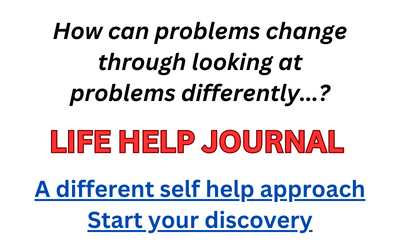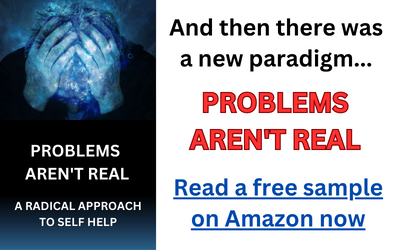If losing weight is something you’d genuinely like to do, here’s a simple plan you can try. First, do a bit of mental consideration and decide just how much weight you’d like to lose and / or exactly how much you’d like your body to weigh.
Next, write down your body weight goals — handwritten or typed but written in the present, not past, tense. Here’s an example of how this might look:
I’ve lost twenty pounds or I weigh 160 pounds.
After writing this down immediately read it (out loud or mentally). From that point on read it twice daily: once in the morning, once at night.
Next, spend at least fifteen minutes per day telling yourself the story of your new body weight. Tell this story in the present tense — not I will lose twenty pounds but I have lost twenty pounds. Tell this story… feel it, see it, play with it, have fun with it.
Do all of this for three weeks. During this time do not weigh yourself. At the end of the three weeks you may weigh yourself if you’d care to. More importantly than weighing yourself however, consider how you feel at the end of the three weeks in comparison to how you felt before.
That’s all there is to it.
Some readers will certainly notice that I didn’t mention anything about diet or exercise. That’s correct — I did not. This is not because I consider diet and exercise to be unimportant; I’m simply emphasizing mental focus, which ultimately can affect things like an inclination towards better diet choices and / or exercise.For the purposes of this plan however do not consider diet or exercise specifically — if they do come, let them come without a particular ambition.
Let me spend some time explaining the thinking behind this weight loss plan. As previously stated, it emphasizes mental focus; specifically, it seeks to shape the perception of one’s reality. Most people believe that outlook follows experience. For instance, we will feel better about our body and health once we’ve lost weight. I believe however that it actually works in the opposite.
What we experience is based upon our outlook.
When we make the specific effort to tell a positive story about our weight, a story based on our genuine desires, our external experience will eventually conform to this story. If we make the effort to regularly tell a story about losing twenty pounds, we will lose body weight — maybe less than twenty pounds, maybe more, but the loss will come. Most people will solidly reject the idea that we can literally change our external experience based upon our mental focus, but I submit that you are already doing it.
The majority of people are typically unaware of their thought processes: they are moving along in something like a subconscious daze as their mind produces an incessant stream of chatter output. If we were to wake up to this output, to consciously listen to it, we would find that much of it is quite pessimistic and toxic… AND that our life experience tends to mimic it very, very closely.
People with unhappy life circumstances — whether it be excess body weight or money lack or something else — typically tell a mental story over and over and over that reinforces their condition.
I’m fat. I need to lose twenty pounds. I’m a blob. I’m going to have a heart attack if I don’t lose weight. I look awful carrying all this weight around.
And on and on and on. It almost never occurs to us that we aren’t reporting the story of our lives through this mental output, we’re actually — and literally — creating the story of our lives. Consider this quote:
For as he thinketh in his heart, so is he.
This core meaning of this quote — the quote is from the Bible but the essence of it is found in a variety of writings, religious and not — speaks to a notion that is found in countless teachings, some ancient and some fairly modern. The extremely popular book Think And Grow Rich (published in 1937) and the equally popular movie The Secret (released in 2006) are based almost entirely on this notion, which is that we create our reality through the mental stories we tell.
Is this a valid notion? Why not try the plan above and see for yourself.

